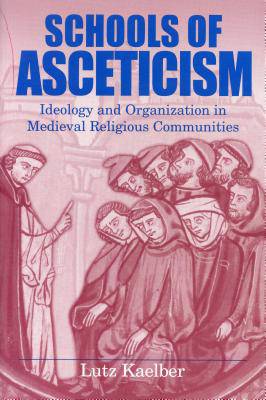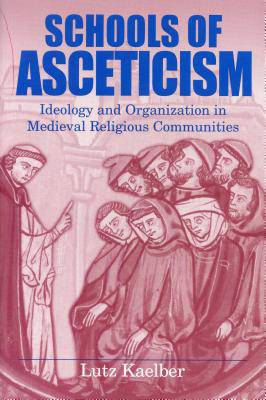
- Retrait gratuit dans votre magasin Club
- 7.000.000 titres dans notre catalogue
- Payer en toute sécurité
- Toujours un magasin près de chez vous
- Retrait gratuit dans votre magasin Club
- 7.000.0000 titres dans notre catalogue
- Payer en toute sécurité
- Toujours un magasin près de chez vous
Schools of Asceticism
Ideology and Organization in Medieval Religious Communities
Lutz KaelberDescription
Max Weber argued that medieval religious movements were an important source for the distinctive rationality of Western civilization. He intended to study precisely this theme but died before he could do so. In Schools of Asceticism, Lutz Kaelber builds on Weber's ideas by presenting a fresh historical and theoretical analysis of orthodox and heretical religious groups in the Middle Ages. He explores how doctrine and social organization shaped ascetic conduct in these groups from the twelfth century on.
Kaelber first examines monastic and mendicant groups, correcting common misperceptions about the nature of their ascetic practices and their significance for the emergence of a Protestant work ethic. Then he turns to two of the largest and most widespread heretical groups in the Middle Ages, the Waldensians and the Cathars. For the most part, Waldensians and Cathars practiced a form of "other-worldly asceticism" resembling that of monks and nuns. For the Austrian Waldensians, however, Kaelber documents a type of "inner-worldly asceticism" that resembled what Weber described for early modern Protestant groups. Both types of asceticism originated in distinctive heretical establishments: Waldensian schools and Cathar "houses of heretics." As these establishments disappeared, the boundaries separating Waldensianism and Catharism from Catholicism collapsed. Kaelber is therefore able to link organizational aspects of heretical communities to the tenacity of heresy in the Middle Ages.
Based on exhaustive research into both primary and secondary sources, Schools of Asceticism is a bold and original book that bridges the disciplines of comparative historical and theoretical sociology, medieval history, and religious studies.
Spécifications
Parties prenantes
- Auteur(s) :
- Editeur:
Contenu
- Nombre de pages :
- 288
- Langue:
- Anglais
Caractéristiques
- EAN:
- 9780271028927
- Date de parution :
- 15-04-98
- Format:
- Livre broché
- Format numérique:
- Trade paperback (VS)
- Dimensions :
- 152 mm x 229 mm
- Poids :
- 426 g

Les avis
Nous publions uniquement les avis qui respectent les conditions requises. Consultez nos conditions pour les avis.






